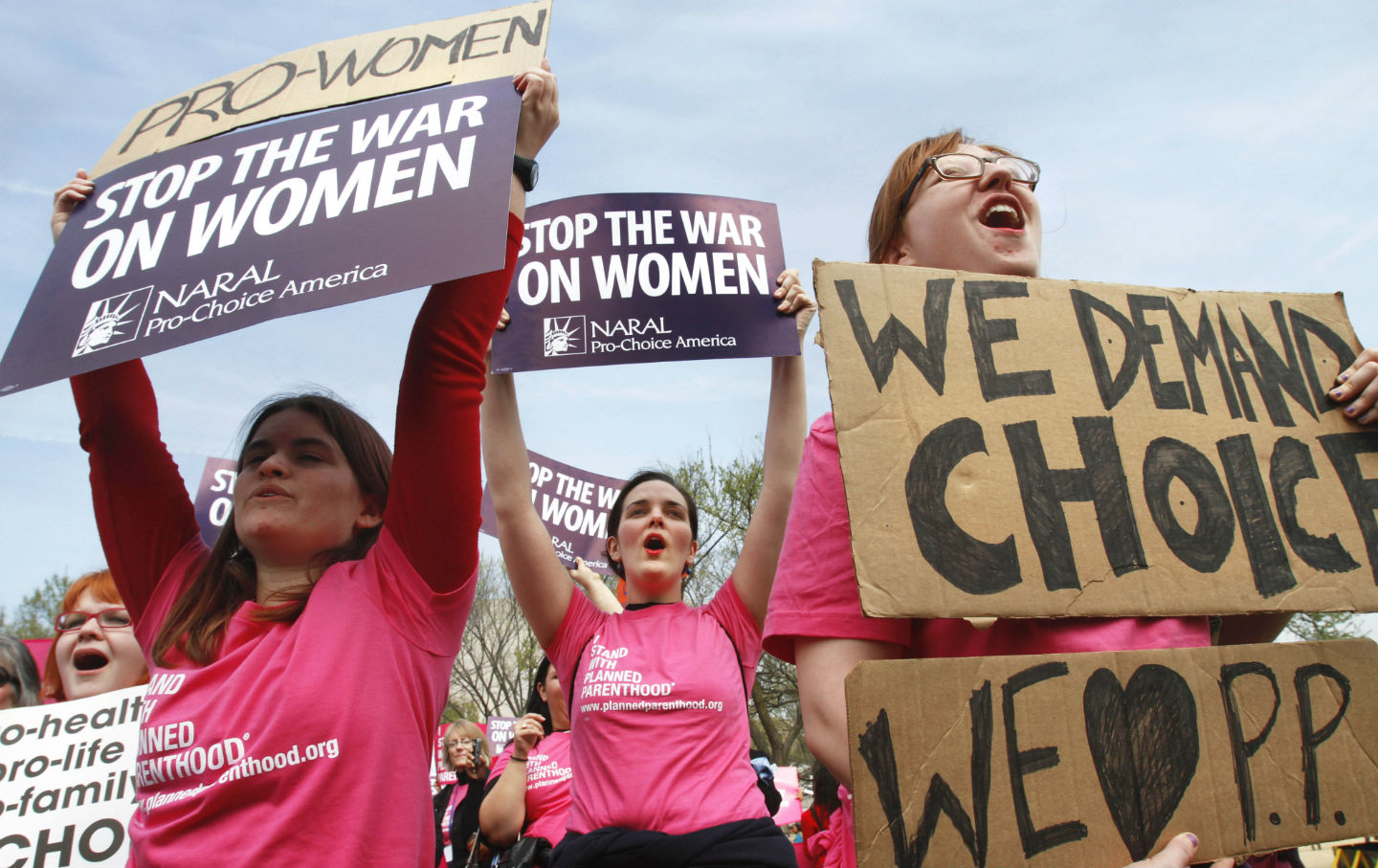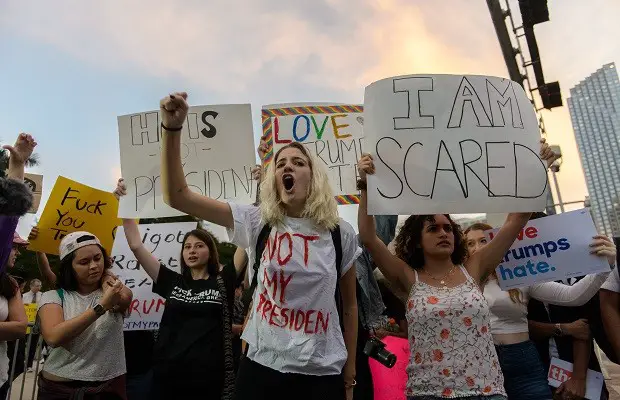Women’s Reproductive Rights in Trump’s America
Make no mistake about it: An attack on women’s bodies is an attack on women’s rights.
By Karen Juarez, University of Illinois at Chicago
Just a day after the 45th president of the United States was inaugurated, women stood up.
The Women’s March, a global movement by feminists of both sexes, occurred on January 21, 2017—as in nearly a century after women first gained the right to vote. Unfortunately, it seems that since 1920, time has moved in a circle, leaving women today in the same position they were in during Prohibition.
Even after the 19th Amendment, the American political system continues to misrepresent women and their desires. But, women are tougher than discrimination and hate, and, to prove that, they stood up and marched all around the world, demanding their voices be heard.

When it comes to vocalizing their concerns, women have a laundry list of injustices to face, especially in other countries. On a global scale, women in some countries are forbidden from attending school school, protesting arranged marriages and straying from traditional gender roles.
American women have problems of their own. Recently, for example, representatives from Planned Parenthood were barred from speaking with Speaker Paul Ryan, despite having both a scheduled meeting and a petition bearing 87,000 signatures. The meeting was intended to discuss the repercussions of the Republican effort to repeal the Affordable Care Act, an action that would defund Planned Parenthood and jeopardize the health of women who rely on its services.
Why defund Planned Parenthood? The organization, as the name implies, assists in decisions regarding childbirth, as well as provides basic medical services for women, including breast cancer screenings, pelvic exams, pregnancy tests, STI testing and birth control. For many women, Planned Parenthood is an indispensible source of medical information and a tool for their health; its convenience makes obtaining informed advice feasible, as appointments can even be made online.
So, if Planned Parenthood is so beneficial to women, why are many Republicans bent on defunding it?
In short, abortion—one of the most taboo, discomfiting topics in American society. Are cells really humans? At what point is one considered alive? Is abortion death or murder? The entire issue stands at an intersection of science, faith and human rights that is so singular, and so complicated, that for most, no simple answer will ever exist.
What is undeniable, however, is that because lawmakers have made reproduction a political issue, and because women shoulder the physical responsibility of bearing children, women’s rights and Planned Parenthood will always go hand-in-hand.
President Trump, however, seems to be unsurprisingly oblivious to the complexity of women’s reproductive health, and has put a target on any institution that offers safe abortions to women, which unfortunately includes a number of programs that offer a slew of valuable medical resources, only one of which is abortion. On day one of his presidency, Trump signed an executive order reinstating the Mexico City Policy, a dictate that cuts off U.S. aid to any NGO that “performs or actively promotes” abortion.
As a result, Marie Stopes International, an NGO that promotes family planning and helps provide resources to developing nations, estimates that the rescindment of U.S. funding will cause: “6.5 million unintended pregnancies, 2.2 million abortions, 2.1 million unsafe abortions, and 21,700 maternal deaths.”
It is always a macabre irony that pro-life politicians seem to disregard the lives of mothers that will be lost by banning abortions.
They also doom and later detain many of the children that will be born to no future, destined only to inflict pain on others and continue the cycle of atrocities that they were unknowingly thrown into from birth.
Obviously, not everyone is pro-choice, nor is everyone pro-life, but as a millennial, you likely believe that people should have the choice to be able to act on their beliefs. Whether or not a woman decides she wants an abortion is her right, and removing that decision from her is a very physical, frightening form of disenfranchisement, in which the public at large (half of whom are male) get to decide what your body does.
As a result, it should come as no surprise that Planned Parenthood and The Women’s March should be so closely allied—denying a woman the right to control her body is denying a woman her rights. In that light, it’s easy to see The March for what it really is: A group of people uniting to ensure women have full rights.
It seems to be embedded in the millennial psyche to strive for change, but without a commitment to equality for everyone, that change will never come. Feminism is not women demanding to be better than men, but rather women demanding to be treated as equals; and, the collaboration between The Women’s March and Planned Parenthood is simply an extension of that desire, with women demanding that their bodies and medical needs be treated equally to those of men.


















[…] The Women’s March not only featured the likes of pro-Sharia Linda Sarsour, but also that of Planned Parenthood, what is undoubtedly the most racist organization in America today, killing more black people than […]
[…] The Women’s March not only featured the likes of pro-Sharia Linda Sarsour, but also that of Planned Parenthood, what is undoubtedly the most racist organization in America today, killing more black people than […]
[…] The Women’s March was an enormously large political march and inspiring movement at the beginning of 2017. The turnout in Washington, D.C., the central location, was estimated around 500,000 people and around the world, about five million people attended marches. If only this immense encouragement had set the tone for the year. […]